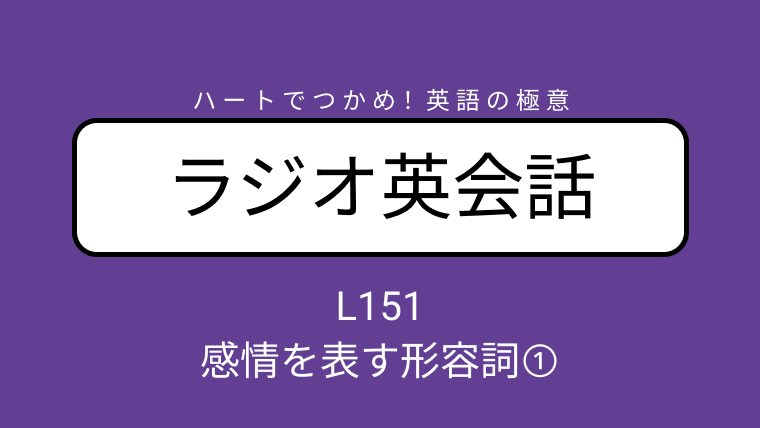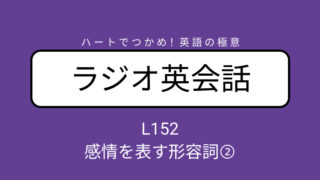NHKラジオ英会話のディクテーション「感情を表す形容詞①」L151 2022/11/14

ディクテーション
講師陣の英会話を書きとり(スクリプト)
大西先生、クリスさん、ろーざさんの英会話部分を書きとってみましょう!(大西先生のギャグもできるだけ書きとります。)
Opening
Roza: 時々さぁ、心を癒してくれるようなメール、受け取ることあんじゃん。さて問題です、私はそういうメールを何と呼んでいるでしょう?・・・なぐさめーる・・・。
ラジオ英会話、ハートでつかめ英語の極意、講師の大西泰斗です。
Roza: 先生、そんなの朝から聞いたら、目が覚めーる。Akino Roza here.
Chris: ♪ I can open your eyes. Chris McVay here. Let's get started.
Ohnishi: さ、それでは今週も頑張っていきましょう。
in between 3:27
Ohnishi: So, could you explain why in is used here?
Chiris: Well, as you said, you know, you don't need it but in really focuses on that space so … song - gap, song - gap … and in that gap, you put the joke, so the positional in.
最後のところ、ゴニョニョしててイマイチ分からないです。
ダイアログ和訳の後
Roza: Hey guys, check out our textbook. You don't have to worry about it being disappointing.
Practice 9:50
Chris: Hi guys, it's practice time. And today, the focus is on ing - adjectives. Now these describe the things your emotion is connected to. For example, their new songs - the thing, boring is the emotion and there is the connection. Their new songs are rather boring.
So, let's practice together, "Their new songs are rather boring."
Roza: Here is the next example, "His jokes in between the songs were annoying."
Chris: OK, and here is the list we are go through quite quickly, are you ready to repeat? "It was exciting." "It was thrilling." "It was satisfying." "It was pleasing." "It was disgusting." "It was surprising." "It was inspiring." "It was encouraging."
OK, I think you've done a great job, how exciting was it?
Roza: Well, I find everyone's efforts, very inspiring.
Ending
Ohnishi: Hey guys, we receive many letters with encouraging comments, right?
Roza: That's right. And we are so happy to see everyone's improvement.
Chris: That's right. It actually keeps us motivated to do better and better ourselves.
・・・・・
Ohnishi: というわけで、今日はこの辺で。
All: Bye.
~ ディクテーションした内容やその解釈などに、聞き間違いや認識違いがある可能性はあります。ご了承ください


